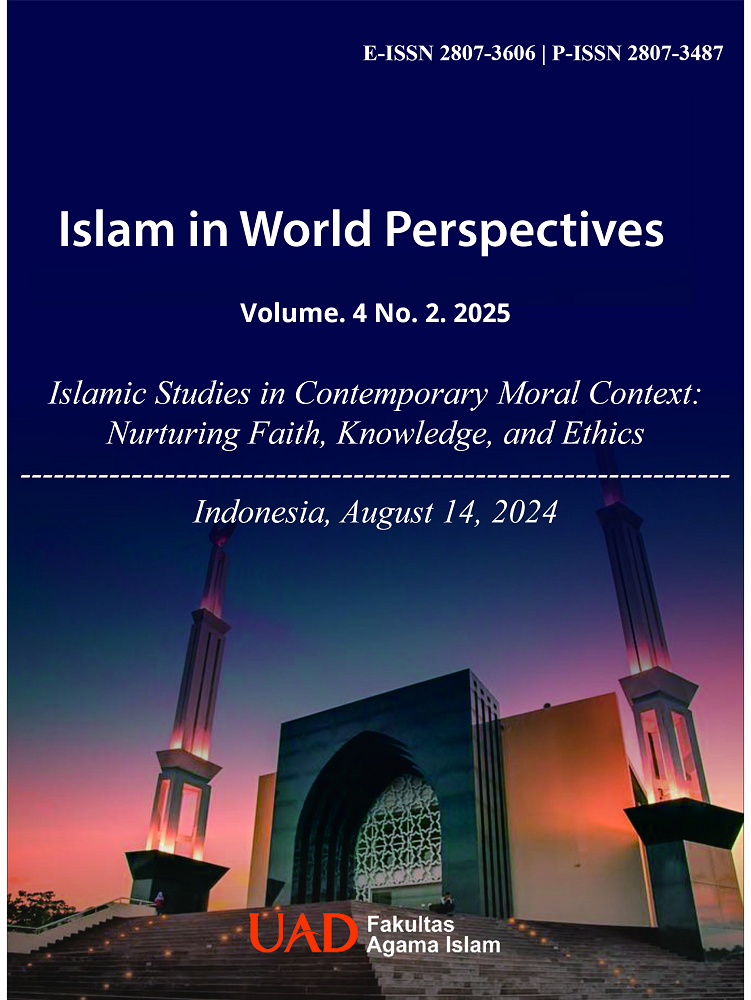Human rights in the perspective of Islam and the 1945 constitution post-amendment
Abstract
The purpose of the study on the title of this paper is to understand how the concept of Human Rights in Islam and the 1945 Constitution post-amendment is. The research method employed is library research. In this study, the author utilizes a juridical approach and a normative theological approach. The data processing and analysis involve a descriptive-analytical method, used to analyze the concept of Human Rights by presenting data to draw conclusions. The historical analysis method is employed to analyze the background of the emergence of Human Rights material in Islam and the 1945 Constitution, while the concept analysis method is used to examine and compare the preceding concepts of Human Rights. The research findings indicate that the concept of Human Rights in Islam and the 1945 Constitution post-amendment is consistent in considering justice as a fundamental human need since the inception of Islam. The core content of Human Rights material in the 1945 Constitution post-amendment includes the right to religious belief in accordance with the principle of the One and Only God, the right to life and the preservation of life, the right to education, information, and freedom of expression, the right to continue one's lineage (family rights), the right to employment and social security, the right to the protection of cultural assets, and the right to justice and peace. This means that Human Rights in Islam and the 1945 Constitution post-amendment, based on the author's research, both aim to protect fundamental aspects such as religion, soul, intellect, lineage, and property
Downloads
Published
Issue
Section
License
Copyright (c) 2024 Rubini Rubini, Zahrani

This work is licensed under a Creative Commons Attribution-ShareAlike 4.0 International License.
Authors who publish with Islam in world perspectives agree to the following terms:
- Authors retain copyright and grant the journal right of first publication with the work simultaneously licensed under a Creative Commons Attribution License (CC BY-SA 4.0) that allows others to share the work with an acknowledgment of the work's authorship and initial publication in this journal.
- Authors are able to enter into separate, additional contractual arrangements for the non-exclusive distribution of the journal's published version of the work (e.g., post it to an institutional repository or publish it in a book), with an acknowledgment of its initial publication in this journal.
- Authors are permitted and encouraged to post their work online (e.g., in institutional repositories or on their website) prior to and during the submission process, as it can lead to productive exchanges, as well as earlier and greater citation of published work.

This work is licensed under a Creative Commons Attribution-ShareAlike 4.0 International License.



